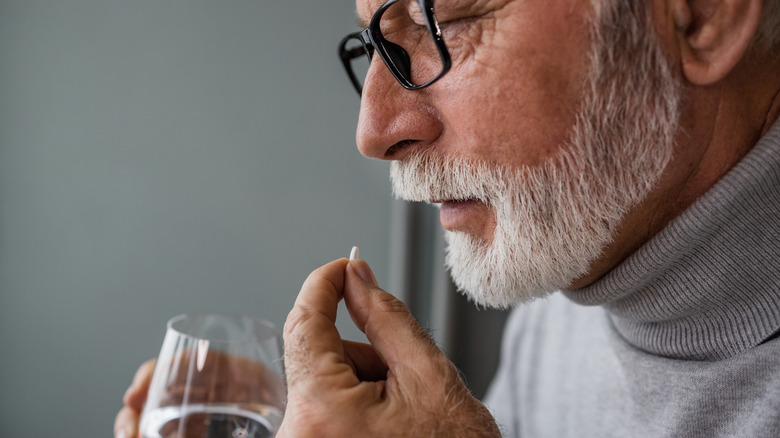Tylenol Vs. Generic: Which Is Better? Here's What We Know
When a headache hits, it can bring an abrupt halt to your day. You reach for the bottle of Tylenol in your desk drawer, only to remember that your colleague took your last two caplets last week. Another colleague sees the agony in your face and offers to help. She offers you her generic acetaminophen bottle, and a part of you panics, thinking it might not be as effective as your cherished Tylenol.
After all, you wouldn't think of swapping generic chocolate chips for your beloved Ghirardelli chocolate. You're convinced your favorite shampoos and skincare products work better than drugstore knockoffs. Woodbridge pinot noir might cost a lot less, but you know it's not the same as a DeLoach pinot noir. So it makes sense for you to assume that the name-brand Tylenol might work better than the generic sold at CVS, Rite Aid, or Walgreens. According to Drugs.com, a bottle of generic acetaminophen not only has the exact same ingredients as Tylenol, but it is also much cheaper.
What's in a generic drug?
A tablet of regular-strength Tylenol has 325 milligrams of acetaminophen to help relieve your headache and reduce your fever. In order to create the tablet, Tylenol also has magnesium stearate, modified starch, powdered cellulose, pregelatinized starch, and sodium starch glycolate. A tablet of CVS's regular-strength acetaminophen also has 325 milligrams of the same active ingredient, but it uses corn starch, povidone, and stearic acid to make the tablet. The medication might also contain sodium starch glycolate.
According to Harvard Medical School, in order for a generic drug to be sold, the drug must have the same strength, dosage, and quality of the active ingredient as the brand-name drug. The active ingredients might vary from one generic to another (or the brand name itself), but the manufacturing of the generic drug is subject to the same rules set by the Food and Drug Administration. This not only applies to over-the-counter drugs like Tylenol, but also to prescription drugs.
Why brand-name drugs are more expensive
It's natural to assume that paying more for a brand-name drug like Tylenol means you'll get better quality. For some generic prescriptions, GoodRx says you might pay 85% less than a brand-name drug. That's because pharmaceutical companies often invest a lot of money into clinical trials to test the effectiveness and safety of a brand-name drug. Once it's been approved, generic drug manufacturers can offer the same drug at a reduced cost because they're not paying for the drug's research. Generic medications are also cheaper because other drug manufacturers compete with one another in the marketplace.
Interestingly, even though generic acetaminophen is exactly the same as Tylenol, some people aren't convinced, according to a 2023 study in The Journal of Medicine Access. More than a third of people believed that generic drugs weren't as effective, had poor quality, or had more side effects than the name-brand drug. Two-thirds of people in the study also said they preferred the brand-name drug over the generic.



